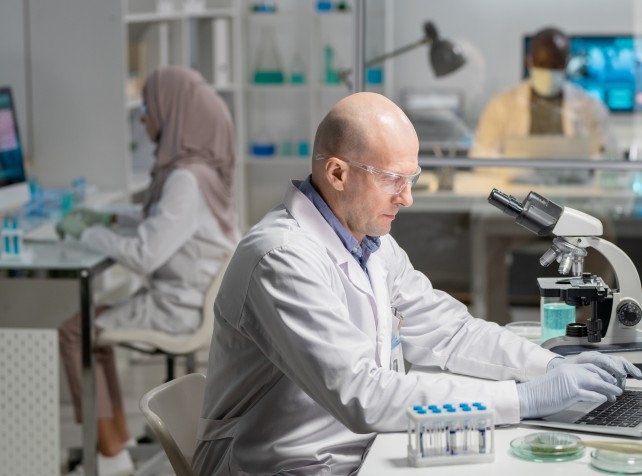A melanoma researcher and oncologist has won the inaugural young women in science prize for her groundbreaking contributions to cancer treatment and care.
Melanoma Institute Australia medical oncologist Ines Esteves Domingues Pires da Silva received the Marie Krogh Young Women in Science Prize and $50,000 for her research.
Subscribe for FREE to the HealthTimes magazine
The prize was launched by healthcare company Novo Nordisk to help address gender disparities in science, technology, engineering and mathematics fields across Australia.
It's named in honour of Danish physician Marie Krogh, who pioneered treatment for diabetes as one of the first women in Denmark to earn a doctorate in medicine.
Associate Professor Pires da Silva was awarded for her dedication to mentoring the next generation of women in science.
She has led the development of the global Melanoma Risk Prediction Tool in partnership with other researchers at the institute, including 2024 Australian of the Year Professor Georgina Long, Associate Professor Alexander Menzies and Associate Professor Serigne Lo.
She was also recognised for the development of the NeoPlatform program with Prof Long.
Both of these programs have shaped national treatment guidelines, influenced international clinical practices and personalised care strategies for patients with advanced melanoma.
"I could not do anything without the infrastructure and my colleagues at the Melanoma Institute," Assoc Prof Pires da Silva told AAP.
"We all do our work based on our mission and vision, but prizes like this validate and recognise our work."
In Australia, women make up 37 per cent of university enrolments in science, technology, engineering and mathematics (STEM), but hold just 15 per cent of jobs in those sectors.
Women also tend to receive less funding and less favourable terms than their male counterparts for follow-on research and development investments.
"I have been mentored by amazing women and men over my career, including Maria Gonzalez and Professor Helen Rizos," Assoc Prof Pires da Silva said.
"The only way to push the envelope in any field is to remember the good examples from your own mentors and try to do the same for the next generations."
Australia's chief scientist, Professor Tony Haymet, said it was also up to the sector to ensure it was an attractive career path to diverse communities.
"We are losing a lot of women who get started in STEM and choose to go into other careers after 10 years," he said.
"I think it's our job to make staying in STEM attractive and that is the full gamut of ensuring salaries are attractive, that it is family friendly, we have to have flexibility because we are competing with other fields."












